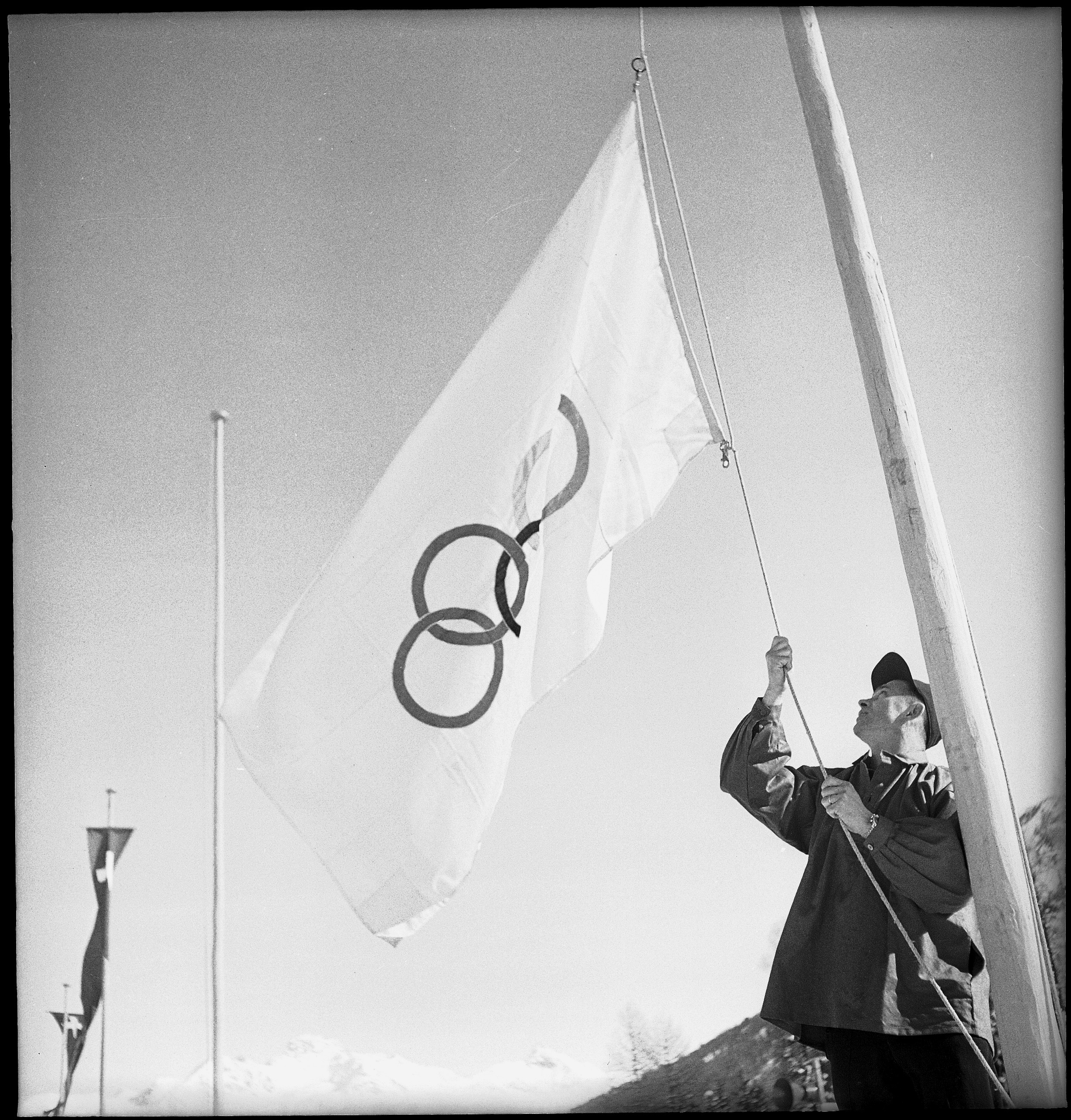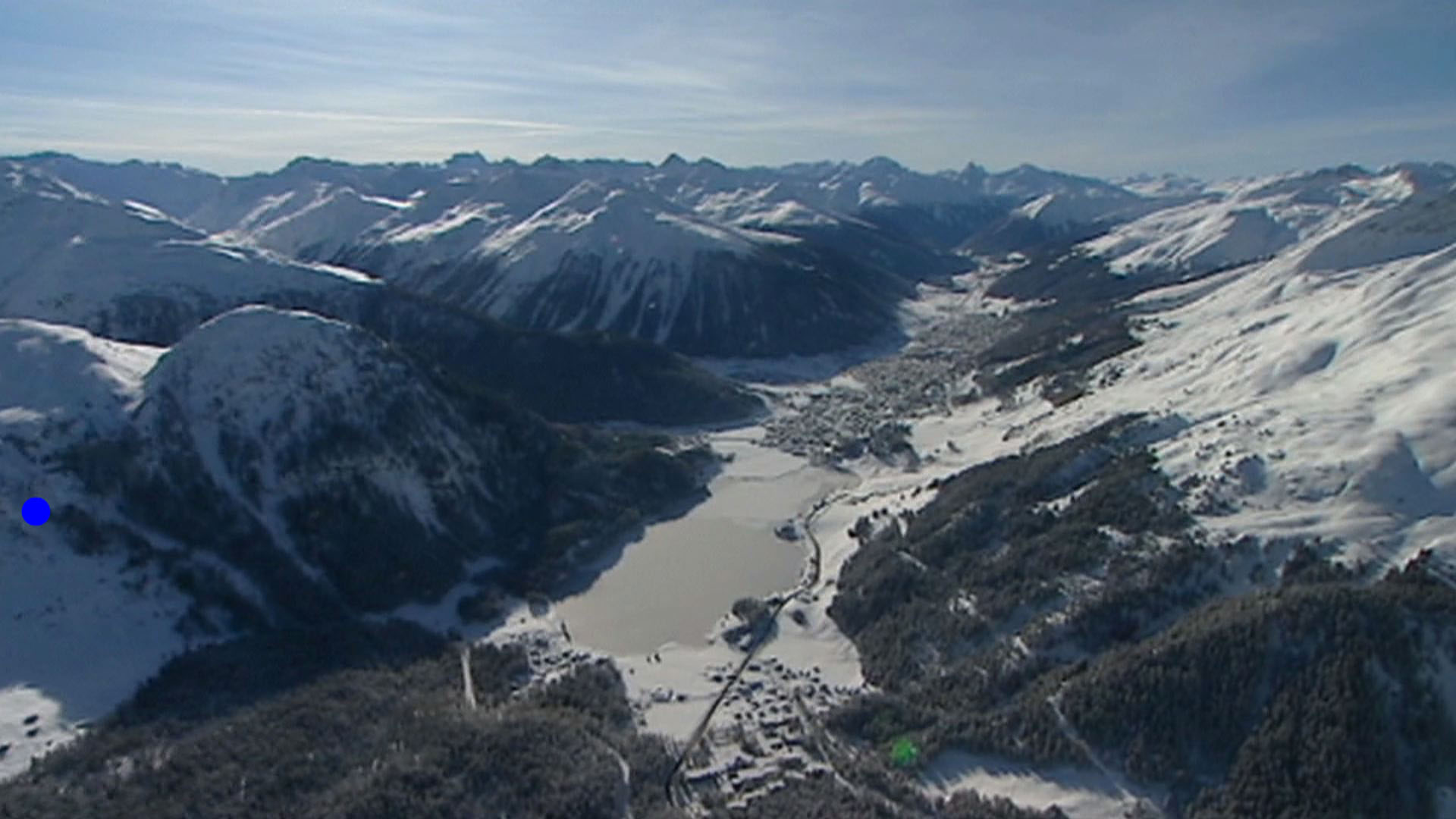No fun and games for Graubünden after ballots cast

Voters in the eastern canton of Graubünden have vetoed a local candidacy for the winter Olympics in 2022, after an emotional campaign that focused on the financial and environmental costs of hosting the Games.
A majority of 54 per cent of voters said “no” to a proposal to set aside a financial reserve of CHF300 million ($320 million) for the organisation of the games. The event would have been centred on the renowned resorts of St Moritz and Davos, which already hosts the annual meeting of the World Economic Forum.
The two towns, which also organised local votes to seek funding for the candidacy and initial investments, came out in favour of the Olympics, but the rest of the canton refused to support them.
Backers of the project said it would be sustainable, planning a smaller event and infrastructures that would be dismantled after the games. Local transport services would also benefited from a CHF900 million in investments, while the landscape would have been guaranteed extra protection.
Arguments in favour of the games included a boost to the local economy, especially the tourism sector.
Opponents, mostly on the centre-left and environmental organisations, warned that the landscapes of the two valleys set to host the Olympics would be inevitably and “catastrophically” tarnished.
They also did not believe the promise of a smaller event than the previous ones, describing the International Olympic Committee (IOC) and its games as giant “cash-generating machines”.

More
Olympic bid: financial fairytale or nightmare?
Deficit fears
The financial cost of hosting the Olympics came to the fore in recent weeks, particularly when it came to the deficit guarantee demanded by the IOC.
The Swiss government had promised to cover any losses beyond the CHF1 billion already pledged towards the games. The cabinet considered the risk acceptable as they would have demanded a balanced budget from the organisers.
Parliament seemed less enthusiastic about opening the coffers.
The Green Party had also notably hinted that it could try to force a nationwide ballot on the issue.
According to a budget forecast published last November, the operational costs for the games would have been CHF2.46 billion, while income would have been CHF1.46 billion with the deficit covered by the government contribution.
The losses recorded by previous games helped convince voters otherwise. Last year, a study published by the University of Oxford showed that since 1960 the cost of hosting the Olympics was on average 179 per cent higher than the initial budget.
Christian Gartmann, spokesman for the Graubünden 2022 committee, admitted the cost factor had weighed heavily on the vote.
“I think the financial aspect played the biggest role,” he admitted. “I believe the opponents also tried to make the cost of the Olympics a matter of principle. But I don’t think it was a vote against the IOC, as some people tried to make it during the campaign.”

More
Building for the Winter Olympics
Overcome differences
The cantonal government was disappointed by the result. “We had a chance to show Switzerland what we know how to do and didn’t seize the opportunity,” said its president Hansjörg Trachsel. “Now we have to overcome the differences that appeared during the campaign.”
Local centre-left Social Democrat parliamentarian, Silva Semadeni, and one of those leading the opposition to the project, said she was particularly satisfied by the outcome of the vote.
“Graubünden citizens were pragmatic at the ballot box and realised that this project was too big for our canton,” she added. “We want development to be based on authenticity and quality, and not on the huge size of an event dictated by outsiders.”
The “no” vote was also a slap in the face for Sports Minister Ueli Maurer, who personally backed the project. His position earned him criticism from within his rightwing Swiss People’s Party, which came out against any financial support for the games.
A number of Swiss candidacies have collapsed in recent years. The biggest failure was perhaps for Sion, the capital of canton Valais, which lost the hosting battle for the 2006 winter games to Turin.
Other projects in Graubünden, Bern, Zurich, Lausanne or even Geneva failed because of local opposition or because the Swiss Olympic Committee refused to back them.
Swiss government: CHF30 million for the bid, CHF250 million security and SFr1 billion other costs
Canton Graubünden and host communities: CHF300 million (subject to a vote on March 3)
IOC: CHF560 million
Private investments in infrastructure: CHF500 million
The remainder was to have been made up from event revenues (sponsorship, ticket sales, sale of temporary infrastructure after the Games).
(Source: Graubünden 2022 candidature committee)
(Translated from French by Scott Capper)

In compliance with the JTI standards
More: SWI swissinfo.ch certified by the Journalism Trust Initiative










You can find an overview of ongoing debates with our journalists here . Please join us!
If you want to start a conversation about a topic raised in this article or want to report factual errors, email us at english@swissinfo.ch.